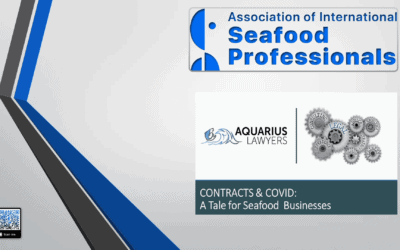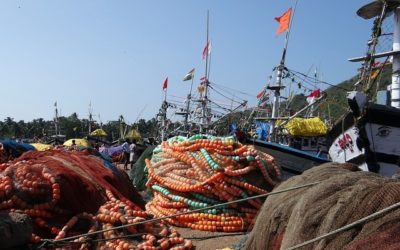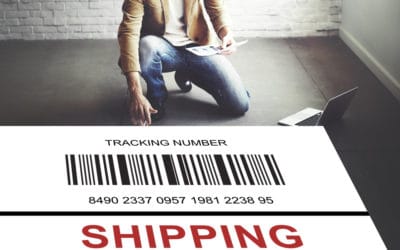EU Landing Obligations for Commercial Fisheries
The “discarding” practice that has been unavoidable for fisherman for years has been highly criticized by the EU. It has been calculated that 8% of the global fish catch is discarded back into the sea.
Discarding is the process of dumping back into the sea perfectly fine, sellable catch that would otherwise end up on someone’s dinner table. The process has been proven harmful for marine life and environment and turns out to be very expensive for fishermen.
In order to end the discarding practice, the EU has recently adopted a new set of laws called the…
Landing Obligation
These set of laws make discarding illegal. Fishermen are now accountable for all the catch that arrives to their ships. The goal of the landing obligation is to eliminate discards and unwanted catches thus improving the business of fishermen and the state of the oceans.
The implementation of the Landing Obligation will take place gradually from 2015 to 2019 and will be applied one by one, to all commercial fisheries.
Who needs to adhere to the legislation?
As a start, all pelagic and industrial fishers, and salmon and cod fisheries in the Baltic are affected as of January 1st 2015. Fishermen have two years to adopt the new practices before the implementation of penalty measures.
Commercial fishermen need to keep all catch on board, land it and count it against the quotas.
Regarding quotas: The practice of over-fishing (“slipping”) will remain illegal, which means that if a vessel has reached its quota, the fishing needs to stop.
The new legislation is accompanied by improved documentation, tracking and electronic solutions. The commitment of the EU is to not only reduce discarding but to improve the processes and results of fishermen.
Where is the landing obligation valid?
Ships in EU waters, for both EU and international fisheries, need to adhere to the new legislation. EU vessels in other countries’ waters and international waters need to stick to the international agreements and the respective state’s legislation regarding landing and discarding.
Timeline
On January 1, 2016, the implementation of the obligation will take on all other ships and fisheries as well (in addition to pelagic and industrial fishers)
On January 1, 2017, the legislation will cover all other remaining species subject to quotas in the EU waters in the Baltic Sea.
On January 2, 2019 all other fisheries in EU waters not covered by state or sovereign legislations will be included.
Initiatives
The EU has taken a few steps to assist the implementation of the Landing Obligation for fisheries. Those include:
- New management systems that increase the awareness, responsibility and freedom of operation of fisheries
- Decrease discards with smart quota tools that have proven very successful in other parts of the world
- Have monitoring programs in place that keep each individual ship accountable for discards
- Being open to new solutions and constantly testing them as individual projects before introducing them to everyone
- Increase the awareness of the end consumer thus pushing fisheries to be more responsible and transparent in their operations.
The EU Landing Obligation’ implementation starts in 2015 as a legislation that will improve the cost-efficiency of fisheries and the marine life in EU waters. It will be gradually introduced to all fisheries in the region to ensure long-term results and cooperation.
Need help in understanding the new EU landing obligations? Ask your questions to Katherine Hawes – the Fish Lawyer here.



